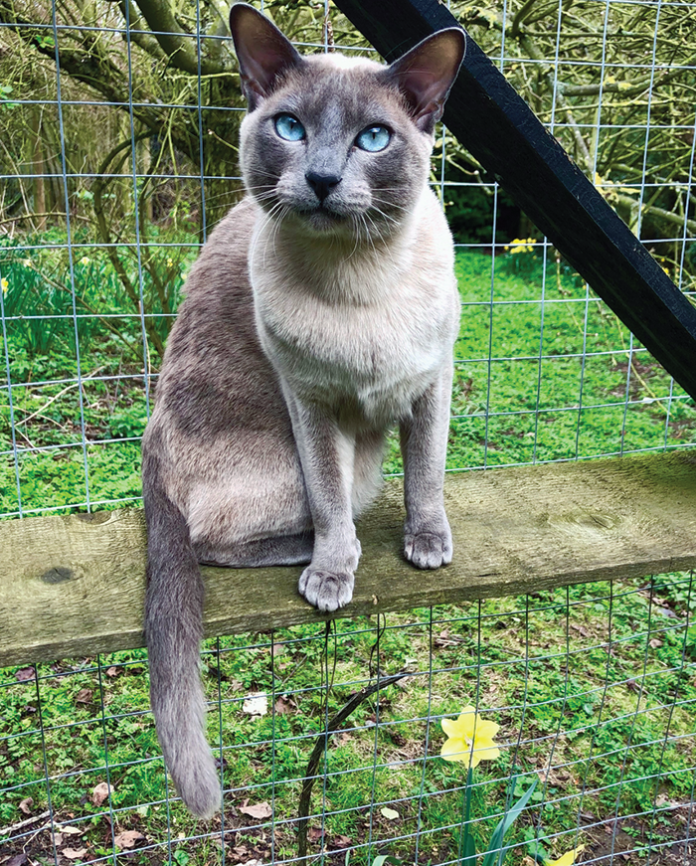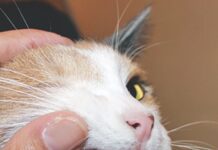Q. My cat was bitten by mosquitos last summer, which caused crusting on his nose and upper and lower right eyelid, probably due to rubbing the bites because they itched. I applied topical hydrocortisone ointment, which seemed to help, but it did not completely resolve until my veterinarian prescribed steroids. He lives in an outdoor catio with other cats that were not affected. Are these reactions to mosquitoes common in cats, and what can I do to prevent them?
A. Thanks for getting in touch, and I’m very sorry to hear that your kitty experienced this problem. Mosquitoes can not only be a nuisance in causing these types of reactions, but they can also transmit other harmful diseases such as heartworm disease, so please consider discussing heartworm preventative with your veterinarian. Interestingly, the tiny mosquito is commonly ranked as the most dangerous animal in the world due to the number of diseases it spreads, but let’s get back to your cat’s problem.
These types of reactions to mosquito bites are called hypersensitivity reactions, and they are an allergic response caused by extreme activation of the immune system to mosquito saliva. The immune system is vital to survival because it protects us (and our cats) from infection by a wide variety of microscopic organisms (i.e., bacteria, viruses, fungi) by first identifying these invaders and then initiating an inflammatory response that ultimately neutralizes them.
This response is mediated largely by white blood cells that make antibodies to the invaders and release chemicals that cause an increase in blood flow and leakage of fluid in an affected area (this causes swelling). These chemicals also recruit other cells to the affected area, some of which are involved with the chemical destruction of the invading organisms (allergen).
While this system has evolved to be an amazing, elegant means of protection, it can sometimes go awry, a condition that is commonly referred to as an allergy. Mosquito hypersensitivity is one example of this phenomenon. In this case, the allergic response is directed against the mosquitoes’ saliva, and the swelling and itchiness that results can cause your cat to scratch, which can damage his skin and fur and lead to secondary skin infections, more scratching, and a vicious cycle of itchiness, scratching, and skin infections that can self-perpetuate.
Of course, the most effective way of preventing these reactions is to avoid the thing that causes them, in this case, mosquitoes. For this reason, anything that you can do to decrease exposure to mosquitoes, including making sure there is no standing water on your property, putting up bat houses to attract these mosquito-eating machines, and the use of mosquito traps would be beneficial. If these are not sufficient, and if your cat’s hypersensitivity becomes difficult to control, it may be reasonable to consider keeping him indoors.
The treatment of mosquito hypersensitivity usually involves the use of some combination of corticosteroids and antihistamines, preferably topically, but in some cases systemic forms (injections, pills) may be necessary. Systemic corticosteroids can be effective in eliminating itch, but they carry the risk of some side effects, including diabetes mellitus and increased susceptibility to infections. If secondary bacterial skin infections develop, the use of antibiotics may be necessary to address these.
I hope that this is helpful, and please discuss these issues with your veterinarian. It’s wonderful that you provide your kitty with a safe, happy outdoor experience, and I hope that by trying some of these ideas and treating any problems that arise promptly, you can continue to do so!




